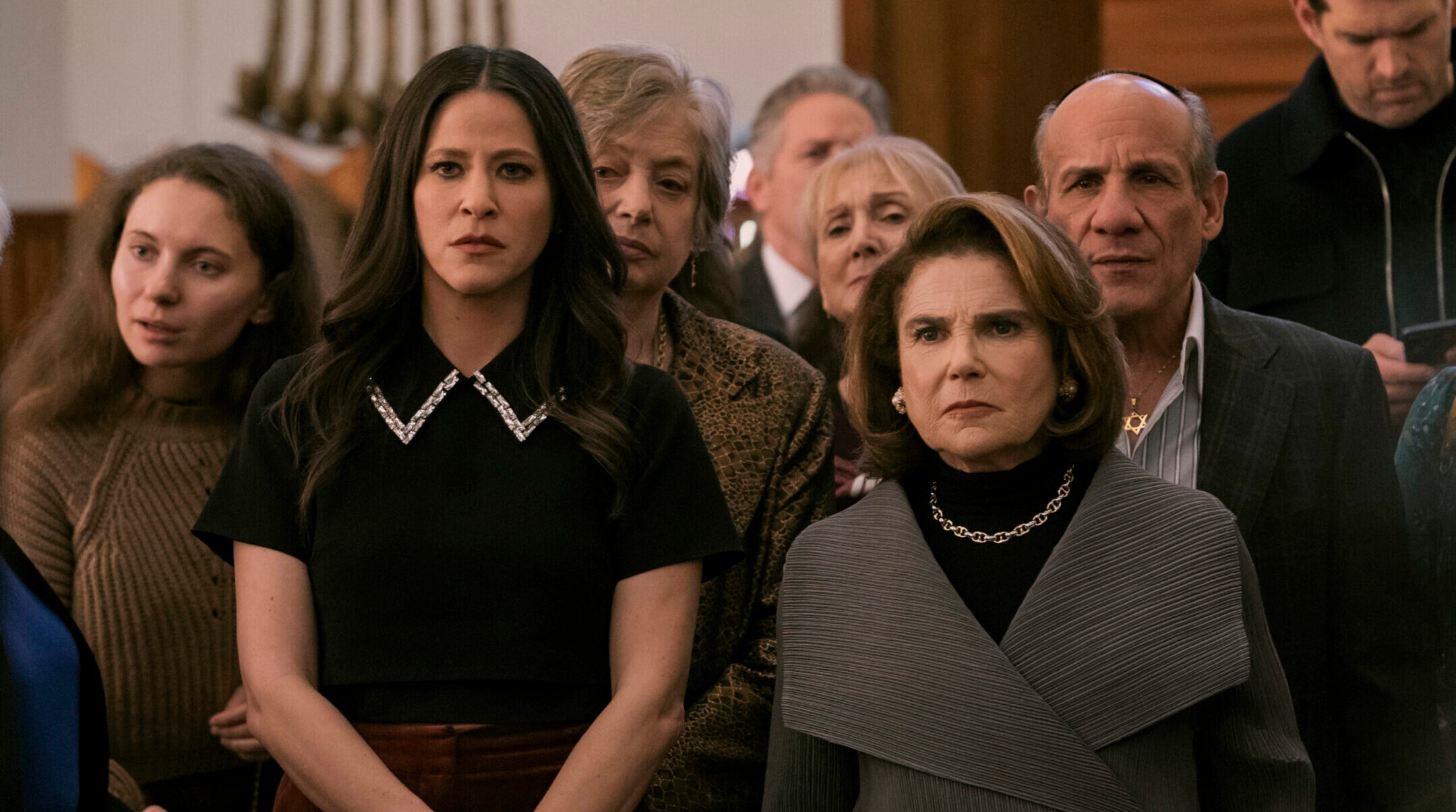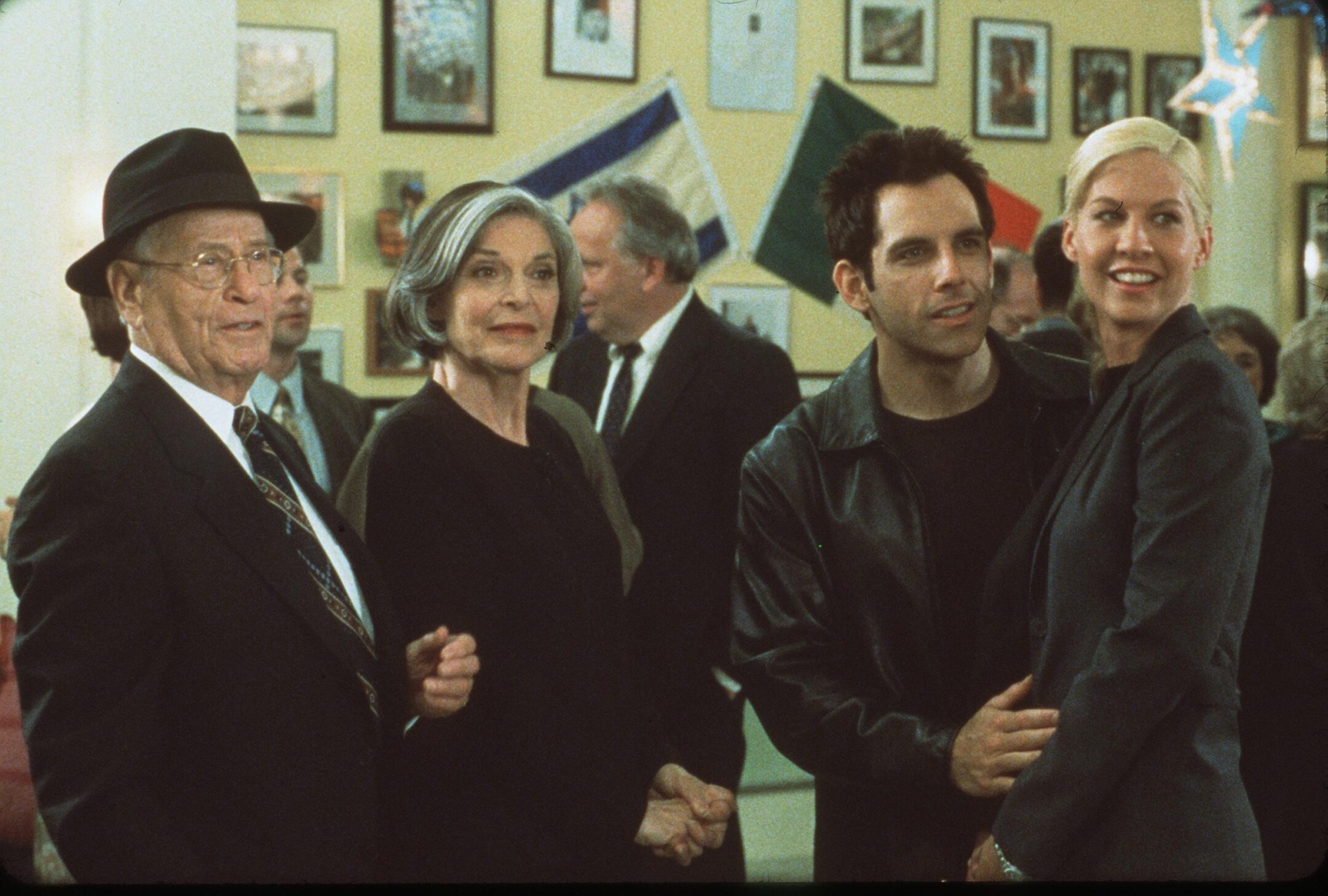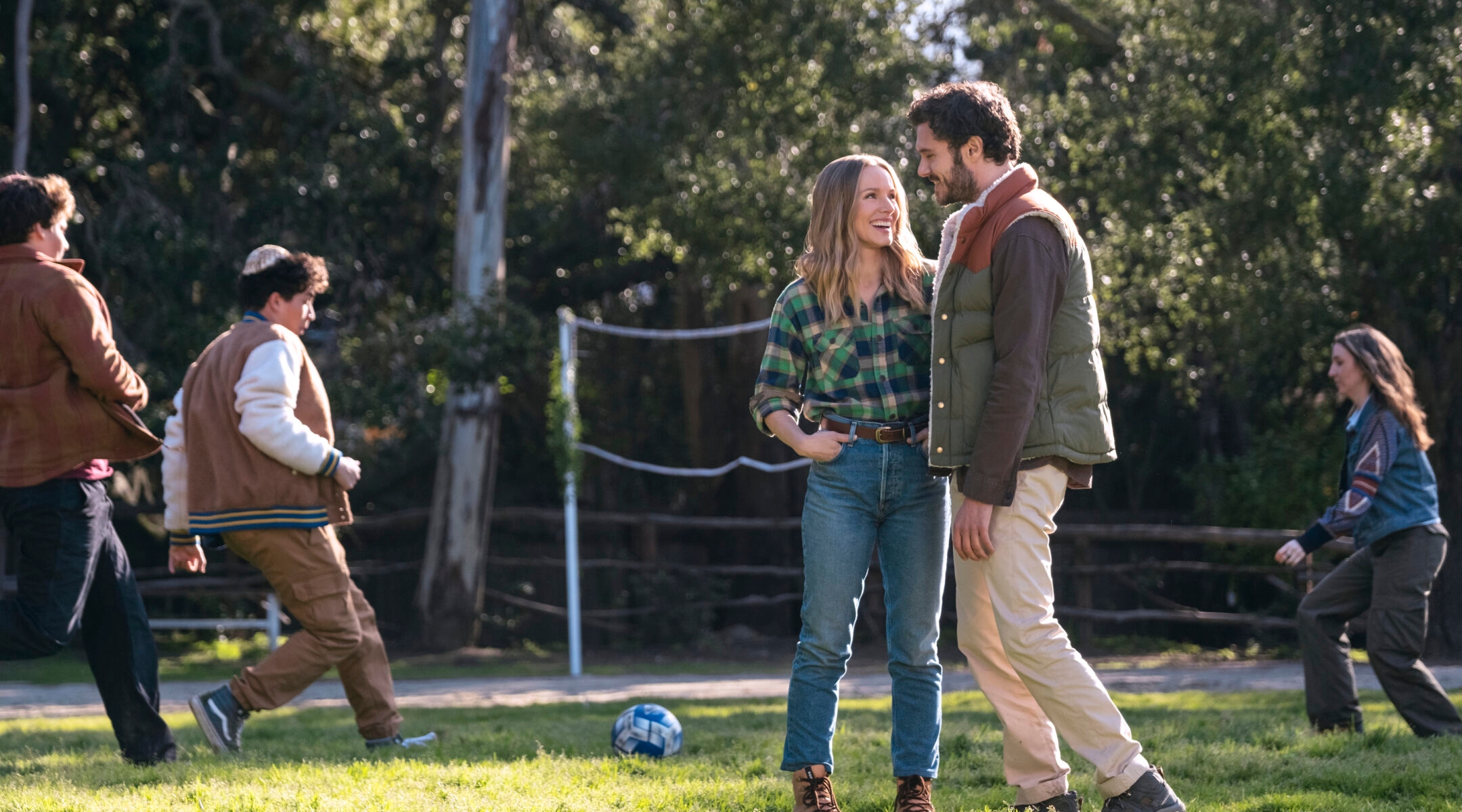As a gender historian and scholar of intermarriage, I binge-watched the new Netflix series “Nobody Wants This” with a combination of foreboding and optimism.
Depictions of romances between Jewish men and Christian women have been ubiquitous in popular culture since “The Jazz Singer” in 1927 as Jewish men in Hollywood depicted their own lived experiences. Having analyzed popular culture over a century, I was concerned that I would see familiar tropes, but I also hoped that there would be some new take on a Jewish man falling in love with a woman of another faith background — a relatively frequent occurrence in real life that is overdue for a thoughtful on-screen revision.
Both my concern and my hopes were fulfilled. I was also pleasantly surprised by what I saw.
Created by Erin Foster and loosely based on her life experience, “Nobody Wants This” portrays Rabbi Noah Rocklov (Adam Brody) meeting Joanne (Kristen Bell) at a mutual friend’s party in Los Angeles. She’s shocked he’s a rabbi because he swears and flirts with her. He hopes there’s a Jewish link, asking: “Are you even a little bit Jewish? Like an aunt, or a great grandmother, or a forged document?” While their backgrounds and families couldn’t be more culturally different, the connection between them is undeniable.
Noah wants to become head rabbi and repopulate the Jewish people; Joanne, who co-hosts a podcast about sex, wants a committed relationship with a good person. The audience is made to wonder: Are these objectives truly at odds with each other? Or, as the characters ask: “Is there a world in which this works?”
And yes, for women born or raised Jewish, “Nobody Wants This” adds salt to the wounds inflicted by the negative portrayal of Jewish women in films like “The Heartbreak Kid” and television’s “Curb Your Enthusiasm.” Noah’s former girlfriend Rebecca (Emily Arlook), whom his family wants him to marry, finds a diamond ring in his desk and puts it on, emasculating him by preempting a proposal. Esther, his brother Sasha’s wife, bosses her husband around and denies him sex. Their mother Bina (Tovah Feldshuh) is overbearing, controlling and insulting. All smiles at the family brunch, Bina whispers to Joanne: “You’re never going to end up with my son!”
These three Jewish female characters reinforce negative stereotypes about Jewish women as unappealing partners while simultaneously providing the foil for Joanne and her sister Morgan (Justine Lupe) as the quintessential, golden-haired goddesses, who are cool and fun, albeit not highly educated.

Jackie Tohn as Esther and Tovah Feldshuh as Bina are among the Jewish women portrayed as intense and overbearing in Netflix’s “Nobody Wants This.” (Stefania Rosini/Netflix)
The frequent use of the term “shiksa” also rubbed me the wrong way, harkening back to “shiksappeal,” coined in an episode of “Seinfeld.” But I was glad to hear the meaning of the word accurately explained for a change: “Technically it’s a Yiddish insult that means you’re impure and detestable,” says Noah. “But these days it just means you’re a hot, blonde, non-Jew.”
It’s a small example of a major theme: “Nobody Wants This” is full of Judaism, Jewish words, symbols and references, delivered to be intelligible to mass audiences. In this context, Noah acts as both Jewish teacher and love interest, in a way that allows him and Joanne to navigate the existential question about their relationship and serve as one model for the growing number of Jews who partner with people of other backgrounds.
Viewers learn that, unlike Catholic priests, rabbis can have sex; Jews do not cross themselves; that the word “shalom” has three meanings; that Pirate’s Booty is kosher but prosciutto definitely isn’t; and that saving a dog can be a mitzvah. They learn that Shabbat can “pop up” anywhere, observant Jews refrain from using technology during it, and that it concludes with the ritual of havdalah. The script explains that the “shvitz” is a sauna, and that Noah could marry two gay people in his synagogue if both are Jewish.
(Is Noah a Conservative rabbi? His approach to performing intermarriage is in line with the movement’s standards, and the prayer books “Lev Shalem” and “Sim Shalom,” both Conservative movement publications, are displayed on the sanctuary table. But other signifiers, including his approach to Shabbat observance, suggest that he could be a Reform rabbi. Denomination doesn’t seem essential in the world of “Nobody Wants This.”)
A reference to pious Jews having intercourse through a hole in a sheet, which is a myth even in the most observant communities, is an exception to an otherwise factual and celebratory presentation of Jewish life.
What makes the series most successful is the portrayal of a strong Jewish male character whose life is committed to making Judaism accessible. Historically, rom-coms have downplayed characters’ authentic Jewishness and conformed to traditional gender roles. So it’s a refreshing display of positive Jewish masculinity when Noah lights Shabbat candles and says the blessing. Illustrating a new generation of rabbis, his sermon sends an inclusive message that resonates with Joanne despite her lack of familiarity with Judaism or belief in God. His basketball team is called The Matzah Ballers and he makes the three-point corner shot.
And when he explains his niece becoming bat mitzvah, he dispels the idea that the party’s theme is central. “A bat mitzvah is a very important rite of passage, and it’s about standing on the shoulders of powerful Jewish matriarchs like Leah and Ruth,” he says. “And, you know, Ruth didn’t start out as a Jew, but we love her.”

Eli Wallach, Anne Bancroft, Ben Stiller and Jenna Elfman star in “Keeping The Faith,” a 2000 romantic comedy about a rabbi who falls in love with a non-Jewish woman. (Getty Images)
While the show bears some resemblance to the 2000 film “Keeping the Faith,” starring Ben Stiller as Rabbi Jake Schram, the handling of the conversion topic is far more explicit. Whereas Rabbi Schram learns belatedly that his beloved has been secretly studying with a rabbi, Rabbi Rocklov broaches the subject directly, asking Joanne if she would ever consider converting. “Nobody Wants This” is groundbreaking by portraying not just the rabbi’s quandary as a model for Jewish continuity, but also the decision-making process and journey of the woman of another faith background. In doing so, it dismantles the odious aphorism that “shiksas are for practice.”
So while some viewers have been correct in pointing out moments of cringe, I believe that “Nobody Wants This” deserves high praise for giving Jewish audiences a glimpse behind the “other” curtain and giving mainstream audiences the opportunity to learn about modern Jews and Judaism — in a way that casually celebrates the richness of our tradition and the way we live within it. Considering the state of the world and antisemitism today, “Nobody Wants This” is a timely series. I’m hoping for a second season.
JTA has documented Jewish history in real-time for over a century. Keep our journalism strong by joining us in supporting independent, award-winning reporting.







